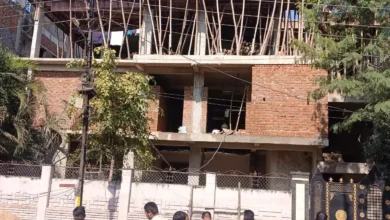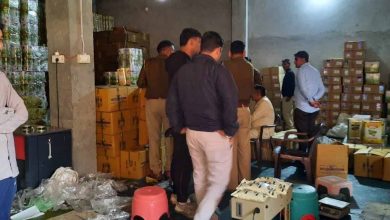Kashmir: Calm lakes and aquatic life in danger due to hot waves

Srinagar: The Kashmir Valley, famous for its serene lakes, pristine rivers and aquatic life, continues to reel under a severe heat wave, posing a grave threat to the region. Experts have warned that rising temperatures are threatening aquatic ecosystems crucial to local biodiversity and the economy. Kashmir is experiencing a rare heat wave with daytime temperatures averaging six degrees Celsius above normal. Experts said fish are highly sensitive to changes in water temperature and even a slight increase can affect their metabolism, growth and reproductive cycles. The heat wave is leading to falling water levels and depleting oxygen levels, creating an unfavourable environment for fish and other aquatic species.
Environmental researcher Shaheena Jan highlighted the gravity of the situation. “The current heat wave is unprecedented in its intensity and duration. Water temperatures in our lakes and rivers are rising, putting immense pressure on aquatic life,” she said. He said if these conditions persist, we may see a decrease in fish population, which will have an impact on the entire ecosystem. Dal Lake, a famous tourist attraction in Srinagar and an important water body, has seen its surface temperature rise dramatically in the last few weeks.
“The increase in water temperature is leading to depletion of oxygen levels, which can be fatal for fish and other aquatic organisms,” Jan warned. Ichthyologist Dr Mehraj Bashir said fish have died in the past in water bodies such as Dal Lake and Jhelum river due to various factors. “Water temperature up to 25 degrees Celsius can be managed. Above this, fish start struggling, though they can tolerate up to 30 degrees Celsius. As the temperature rises, oxygen consumption also increases. Water oxygen concentration of 10-15 mg/litre is ideal,” he said.
Rivers and streams fed by melting snow from the mountains are also bearing the brunt of the heat. Rapidly melting ice and high temperatures are changing the water flow pattern and degrading the water quality. Local fishermen, who depend on the lake for their livelihood, have already reported a significant drop in their daily catch. A fisherman named Ghulam Nabi shared his concerns. “We have never seen such warm water in the lake. The fish are either moving to deeper, colder parts or dying. This is our main source of income, and it is becoming difficult to feed our families.”





